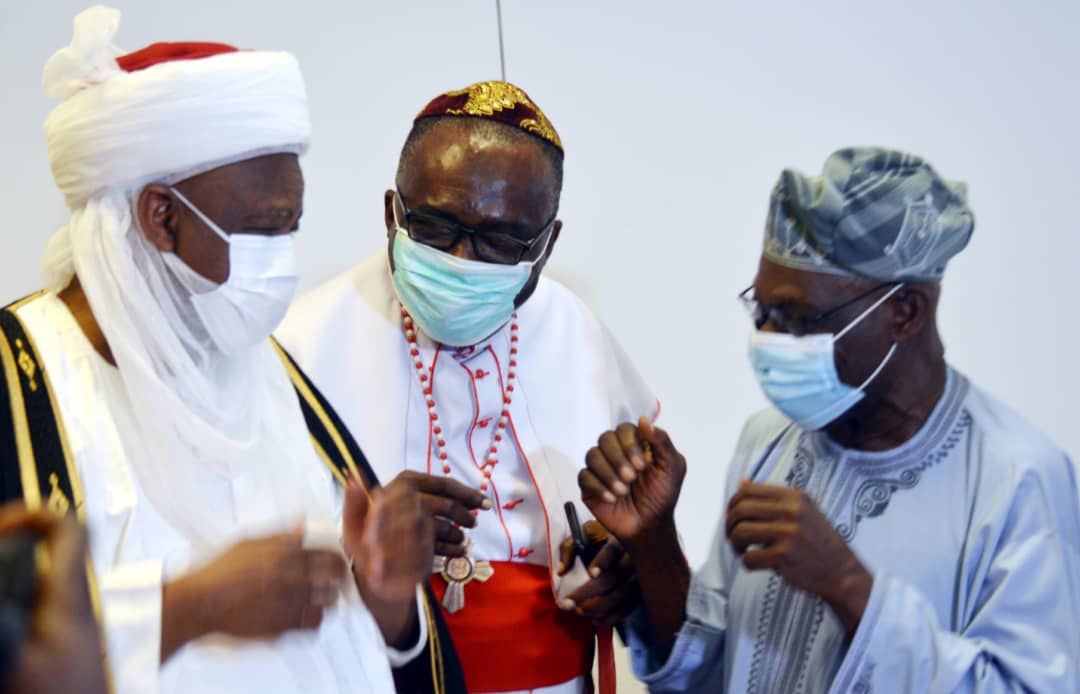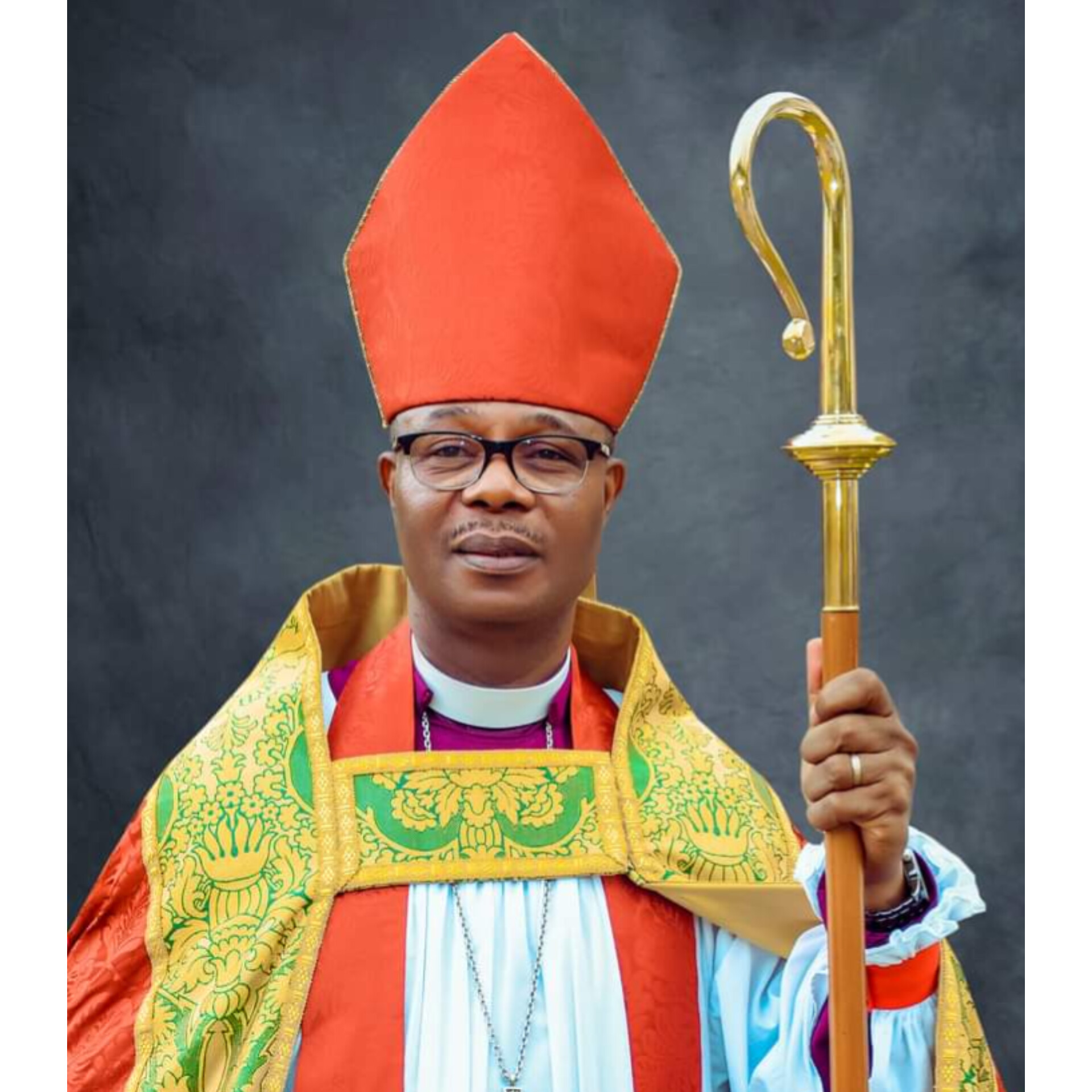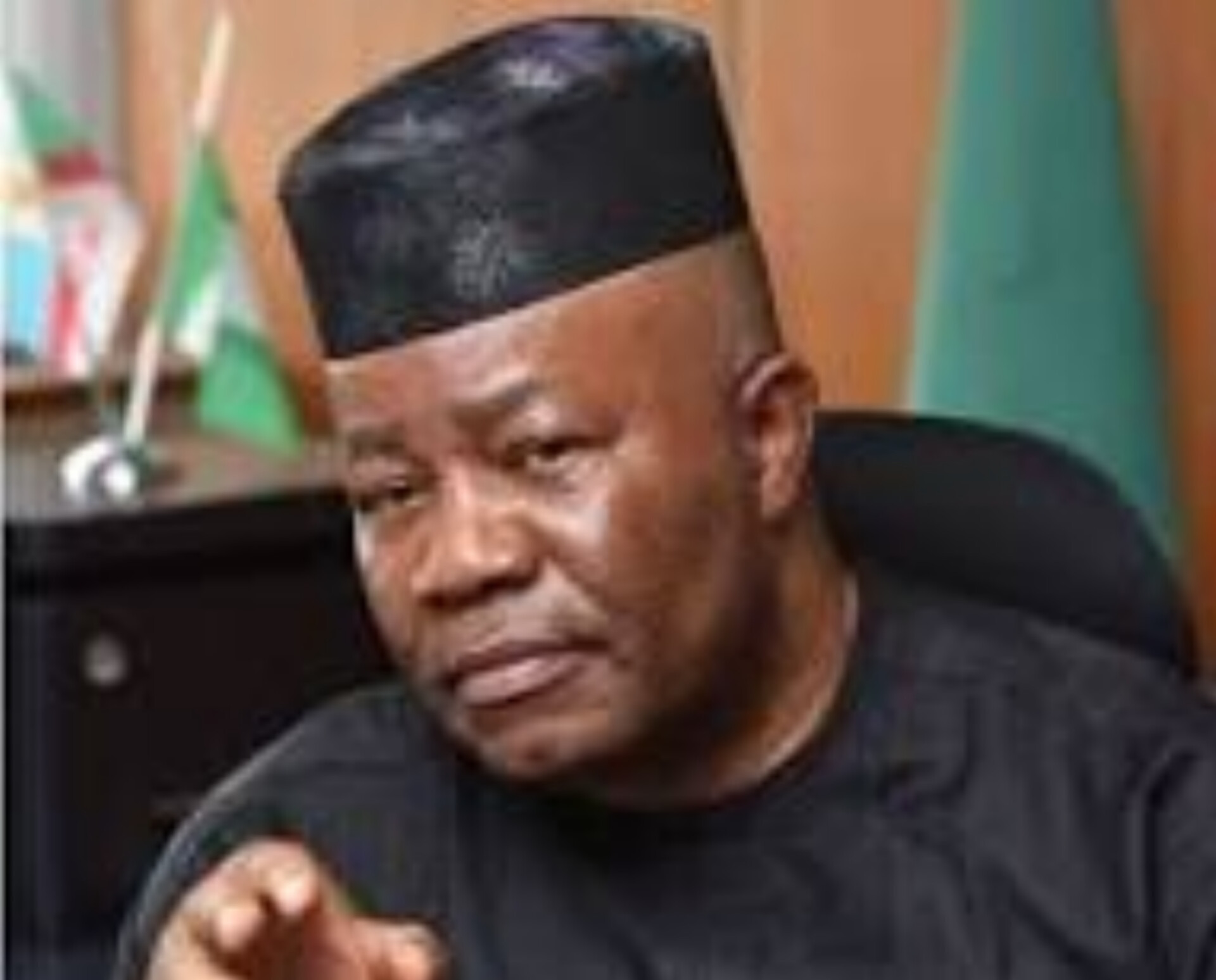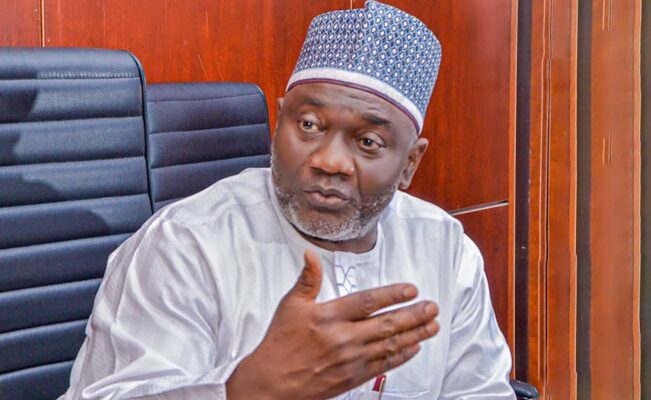Religion
Stakeholders urge religious leaders to step up moral rearmament to salvage Nigeria

Stakeholders have challenged christian, Muslim and traditional religion leaders to step up the responsibility of contributing to the collective reengineering and moral rearmament urgently needed to salvage the nation, in fulfilling their roles as religious leaders and pulpit managers.
This was part of the consensus reached according to a communique issued after an inclusive, open dialogue recently in Abuja through the collaboration of Vision Africa (VA) and the Global Peace Foundation (GPF); which was facilitated by the President of Vision Africa, Bishop Sunday Onuoha.
The inclusive security dialogue had in attendance, key stakeholders and elder statesmen, namely; former president Chief Olusegun Obasanjo GCFR, the Sultan of Sokoto, His Eminence, Alhaji Muhammad Sa’ad Abubakar, President of Vision Africa Bishop Sunday Onuoha amongst others.
According to the communique, the security retreat was meant to bridge the gap across ideological, political, ethnic, religious and cultural divides, which will help in understanding the conflict dynamics in Nigeria, as stakeholders all look ahead to charting a path to peace and integral security in Nigeria.
The communique reads in part, “The simple objective of the retreat was to honestly and transparently come to the dialogue table or ‘conversation room’, irrespective of our political leanings or ideologies – focusing first, on our common humanity.
“The purpose of the retreat was to bring stakeholders together to address critical issues and seek lasting solutions to the grave challenges facing Nigeria, beginning from an affirmation of transcendent truths that define our
common humanity.
“As Nigeria, and indeed Nigerians, face an existential challenge, we circulated invitations to an intentional pool of key influencers, political leaders, regional leaders and leaders of separatist/agitating/self-determination groups; and high-level religious and civil society leaders.
“The aim is to address the conditions that foster unrest and radicalism globally. Such conditions as poverty, unemployment, social dislocation, cultural polarization, and a large demographic of disaffected and alienated Nigerian youths.”
This expanded meeting is sequel to an earlier “Inclusive Security Dialogue Retreat” held at the Airlie Conference Center in Warrenton, VA outside Washington DC between the 18th and 20th October 2021, to select Nigerian key influencers, adopting the Chatham House rules in moderating the dialogue.
Later there were consultations at the Capitol Hill with some members of the US Congress, with expected outcomes from the meeting which include: “an increased understanding of the root causes of conflict and violence affecting the country.
This they said will also increased positive relationship between the Nigerian government and various agitating groups across the country, and a refocus on the importance of universal principles and shared values as the glue for social cohesion and sustainable peace.
As a result of the dialogue meeting, the individual discussants contributed to the communique, highlighting the following thematic focal points:
“High prevalence of insecurity in Nigeria is driven largely by social Injustice and a failed economy; hence fueling continued agitation by the country’s young alienated generation.
“Hunger and starvation in the Land will get worse as continued violence and insecurity makes our farms unsafe for families whose basic sustenance is dependent on their yields from the farms. o Neglect of oil exploration communities and minorities will only deepen the threat to our security and unity.
“Underdevelopment and isolation cannot remain the strategy else they will be uncomfortable to remain with the concept of Nigeria.
“The role of religious leaders and pulpit managers (traditional, Christian, Islam) in our moral rearmament and collective reengineering is urgently needed to salvage our nation.
“National Development without a focus on Youths and the education sector, and an intentional intergenerational collaboration between the elite and the youths, may not augur well for our security.
“Neither will the organized movement of street children and the disabled from one part of the National Reconciliation Conference, that allows the principles of fairness, equity and justice; country to another. We postpone doomsday if it is ignored.
“The 1999 Constitution is Oligo-military in nature and does not represent our collective interests; it needs to be re-negotiated by national ethics. A constitutional review process, enabling peace and social cohesion is necessary. Government shall therefore provide an environment where a new Constitution from the representatives of the people by the people and for the people would emerge.
The consensus as expressed in the communique, agreed upon by the individual discussants states as follows: “We emphatically call for the cessation of incitement, misrepresentation and distortion of the image of the other and of the neighbor. Instead, we must draw upon our religious traditions, and our understanding of what is best for our people
“Government must act sincerely as an unbiased arbiter to address insecurity headlong as the high prevalence of violent crisis, kidnapping, and fatal attacks in Nigeria are driven largely by social Injustice and a failed economy.
“The Church, the Mosque, and traditional worshippers must as a matter of morality, step up to the responsibility of contributing to the collective reengineering and moral rearmament urgently needed to salvage our nation, in fulfilling their roles as religious leaders and pulpit managers.
“Government, as a matter of urgency must convene a national reconciliatory conference where we can all address the underlying issues of our challenges and hateful statements/agenda that successive governments have ignored to address; this convening should be organized in order to quell the mistrust-fueled agitations and crisis before the entity called Nigeria collapses.
“The 1999 Constitution does not embody the principles of justice, fairness and equality, on which every democracy is founded.
“Thus, it does not fully protect the rights and interests of Nigeria’s diverse constituencies.
“We call on the Government to begin a process of constitutional review, amend and rework the constitution, drawing on our previous constitutions, amongst other things, to synchronize/harmonize the laudable principles they embody. This will ensure, not one-off solutions, but lasting change.
“Government at all levels must revisit and show sincere effort at understanding the core issues of dissidence and self-determination in Nigeria, rather than incarceration, bullets and counter-attacks as government response to agitations and unrest.”
Religion
Gov. Uzodinma, Ihedioha, Amuchie top list of dignitaries for 2024 Mbaise Diocesan Synod

By Obinna F. Nwachukwu, Abuja
The 2024 second session of the Eleventh Synod of the Diocese of Mbaise Anglican Communion is billed to hold at the Immanuel Anglican Church Amumara, Ezinihitte Mbaise from Thursday 23rd to Sunday 26th May, 2024.
Among dignitaries expected to grace the event are, Imo state Governor, His Excellency, Senator Hope Uzodinma, his predecessor in Office His Excellency Rt. Hon. Sir Emeka Ihedioha, Executive Director with Fidelity Bank Plc Sir Stanley Amuchie
Other dignitaries include, the Chief Executive Officer Igwebuike Foundation Dr. Felix Enogwe, Sir Chibu Enwereuzo, members of the Council of Knights, Synod delegates drawn from the Clergy and Laity of the Diocese, Bishops and Archbishops from other Dioceses and prominent sons and daughters of Amumara, the host community
In a statement issued by the Synod Planning Committee led by Sir Chidi Madugba it said the theme of the 2024 Synod is “The Perils of Over Confidence’ taken from 1st Corinthians chapter 10 verse 12 of the Holy Bible.
Highlights of the Synod according to the planning Committee include; Bible Study, Presidential Address by the Diocesan, Rt. Rev Chamberlain Ogunedo, consideration and approval of reports from the Diocesan Board, the Archdeaconries, Parishes and statutory committees of the Diocese, Bishop’s courtesy call on the traditional rulers of Amumara, as well as cutting of the Synod cake.
The last day being Sunday 26th May will witness Synod Thanskgiving Service and Launching of a N100million Diocesan project support fund and return of Synod Torch.
In the Anglican Church, Synod is the highest governing and legislative meeting of the 3 Houses in the Diocese, namely, – The House of Bishop, The House of Clergy and The House of Laity. The Synod delegates discuss and take decisions on doctrine where there is an issue, on administration and governance of the Diocese and parishes. Synod delegates also discuss matters of the nation and the land which have effects on the church and the people.
Research findings show that constitutionally, the quorum for synod include, The Diocesan Bishop representing the House of Bishop, the clergy of the Diocese representing the House of Clergy and elected, appointed and nominated lay members representing the House of Laity. The Diocesan Bishop is the only member in the Diocese representing the House of Bishop. All other invited Bishops present at the Synod including those invited to preach and lead Bible Study cannot be included in the roll call of the House of Bishop of that Synod. If the Diocese has Suffragan Bishops then they join with their Diocesan Bishop in the House of Bishop. The Diocesan Bishop presents a special Address during Synod which is called Bishop’s Charge or Presidential Address since the Bishop is the President of Synod.
The Bishop’s Charge or Presidential Address normally has these essential contents which are, Synod Prayer , Bible Exposition on the Theme of the Synod, Discourse and remarks on worthy local, national and global issues, Report of the progress made in the Diocese, Highlight of challenges within the Diocese and possible direction on how to handle them as well as projections into the future of the Diocese
The Anglican Diocese of Mbaise, Imo State is one of 12 within the Anglican Province of Owerri, itself one of 14 provinces within the Church of Nigeria.
The diocese was inaugurated on 30 November 1992, the inaugural bishop being Rt Rev Cyril Chukwuka Anyanwu who died in 1999, and was succeeded by Rt Rev Bright Joseph Egemasi Ogu. The current bishop Rt Rev Chamberlain Chinedu Ogunedo was consecrated Bishop on 21 February 2010. He ascended to the Episcopal throne of Mbaise at his enthronement on Sunday 28th of February, 2010.
Rt Rev chamberlain was made a deacon in1998 and priested in 1999 by His Lordship Rt. Rev (Prof.) Augustine Iwuagwu.
He became a Canon in the year 2002 by Rt Rev Prof. Augustine Iwuagwu and collated an Archdeacon in the year 2008 by His Grace, Most Rev Ugochukwu Uwaoma Ezuoke.
Before his election as the Bishop of Mbaise in January, 5th 2010, he had served variously as Chaplain to the Bishops of Aba, Rt Rev Prof Augustine Iwuagwu and Rt Rev Ugochukwu Ezeoke respectively and was occupying the position of Archdeacon on Special Duties of the Diocese of Aba during the bishopric of Most Rev Ugochukwu Uwaoma Ezuoke at the time of his election.
Rt Rev Chamberlain Chinedum Ogunedo is an astute Theologian, an Evangelical Maestro, a visionary leader, a seasoned Administrator, a distinguished academia, a teacher of the word and a prayer warrior. He is committed to service and believes strongly in decency, transparency and accountability. He is the Patron of Anglican Youth Fellowship Nigeria and Grand Patron of the Boys and Girls Brigade Nigeria – Mbaise Joint Council.
His tenure has witnessed great improvements in both spirituality and infrastructural development in the Diocese
Rt Rev Ogunedo is married to Mrs. Oluchi Uloma Ogunedo and the marriage is blessed with Godly children
Religion
Eid El Fitri: Akpabio celebrates with Muslims, Urges prayers for peace, unity

President of the Senate, Senator Godswill Akpabio, has sent out a message of congratulations to Muslims in Nigeria for the successful end of 30 days Ramadan fast.
He also wished them all the blessings as they celebrate the feast of Eid El Fitri.
Akpabio’s congratulatory message was contained in a statement signed by his Special Adviser on Media and Publicity, Hon. Eseme Eyiboh.
“On behalf of my family, the people of Akwa Ibom North West Senatorial District and indeed the Senate of the Federal Republic of Nigeria, I heartily rejoice with all the Muslims in Nigeria as they join their counterparts in other parts of the world to celebrate Eid El Fitri.
“I wish all of you a peaceful and sweet celebration and pray the Almighty God to grant your heart desires”.
The Senate President urged Muslims to continue to offer prayers for peace, unity and prosperity of Nigeria saying, “Islam is a religion of peace and if its adherents go to God in prayer with sincerity, He will surely answer.
“I therefore ask you to pray for your leaders and the peace and unity of our dear country. I believe with your prayers, Nigeria will overcome its current challenges.
“Wherever you find yourselves, radiate the peace that Islam preaches and the love and care for the less privileged that Prophet Muhammad exemplified”
Religion
Senator Echocho felicitates with Muslims at Eid-El-Fitr

The Senator Representing Kogi East Senatorial District, Isah Jibrin (Echocho), has sent a message of felicitations to Muslim faithful on the successful completion of this year’s Ramadan fast.
Special adviser on Media to the senator, Mikail Ibrahim in a statement quoted the senator to have urged the Muslims to celebrate the Sallah in love, and unity across all communities.
Echocho who described the Ramadan period as being stressful said it is deserving, because it is the only period for spiritual reflection on the need to mortify the flesh in sincere sacrifice and supplications to Allah.
He added that, Ramadan symbolises Allah’s way of teaching humanity on virtuous living, where people keep away from all forms of comfort to appreciate what the less privileged experience and deprivation they suffer daily.
He tasked Muslims to extend the lessons of Ramadan to their daily lives and their relationship with their neighbours.
“Let’s seek peace at all times and promote unity of purpose in our society” the Lawmaker demanded.
He prayed that the celebration may usher in sustainable peace every home, Kogi East Senatorial District, Kogi State and Nigeria at large.
-

 Crime1 year ago
Crime1 year agoPolice nabs Killer of Varsity Lecturer in Niger
-

 News1 year ago
News1 year agoFCT-IRS tells socialite Aisha Achimugu not to forget to file her annual returns
-

 Appointment2 years ago
Appointment2 years agoTinubu names El-Rufai, Tope Fasua, others in New appointments
-

 News From Kogi1 year ago
News From Kogi1 year agoINEC cancells election in 67 polling units in Ogori-Magongo in Kogi
-

 News From Kogi2 years ago
News From Kogi2 years agoEchocho Challenges Tribunal Judgment ordering rerun in 94 polling units
-

 News2 years ago
News2 years agoIPOB: Simon Ekpa gives reason for seperatists clamour for Biafra
-

 Metro1 year ago
Metro1 year ago‘Listing Simon Ekpa among wanted persons by Nigeria military is rascality, intimidation’
-

 News1 year ago
News1 year agoKingmakers of Igu/ Koton-Karfe dare Bello, urge him to reverse deposition of Ohimege-Igu
